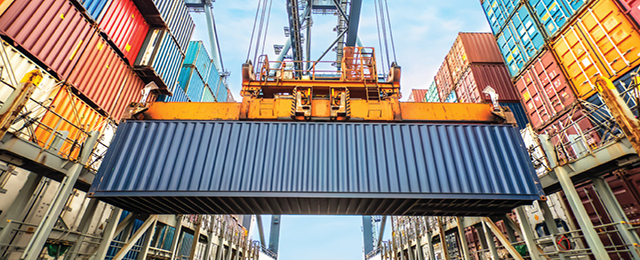This article was originally published on Fair Observer.
Adam Smith is the patron saint of the modern world economy. Venerated as the father of capitalism, he is little read and even less understood. In his view, man has a “propensity to truck, barter and exchange one thing for another.”
It seems Africans have taken Smith to heart, and this week 26 countries of what Europeans called the “Dark Continent” signed the Tripartite Free Trade Agreement (TFTA). The TFTA amalgamates the Southern African Development Community, the East African Community and the Common Market for Eastern and Southern Africa, three of Africa’s main trading blocs. Its ambitious goal is to create a $1.2 billion free-trade area.
The 54 countries of Africa do not trade much with each other. Barely 10% of the total commerce of the continent is intra-African trade. Intra-Asian trade is 25% and intra-European Union trade is over 75%. Mission civilisatrice of the Europeans brought Christianity and railways to Africa, but new borders, rapacious exploitation and colonial bureaucracies destroyed age-old trading relationships and routes.
The post-independence strongmen of Africa were far too often tyrants who robbed, plundered and pillaged their people while seeking the patronage of either the United States or the Soviet Union. Trade did not really flower and employment was scarce.
Today, there is a new energy in Africa. Corruption continues to be endemic, parts of the continent are plagued by inter-tribal violence or insurgency infected now by a new religious fervor, and most elites are still plagued by an inferiority complex that makes them wear ridiculously religious suits under the blazing African sun.
Yet what then-British Prime Minister Harold Macmillan called “the wind of change” in 1960 is blowing through the continent. For all its ills, Africa has entrepreneurial energy. Many young Africans have a hunger to learn. Writers like Chimamanda Adicihe are engaged in an endeavor to find Africa’s authentic cultural voice. Young Africans who leave for the United States or Europe now retain roots with native homelands, and many are returning back with new ideas, skills and ambitions. China is now playing a much bigger role in Africa, bringing new opportunities and challenges.
The Economist rightly points out that the TFTA does not set timelines and that the regional trading blocs have not managed to boost trade. Yet the fact that African leaders are starting to talk about boosting trade among each other is a good thing. The borders in Africa—as in the Middle East—are completely arbitrary and were brutally drawn up on the whim of European colonizers. If they cause less of a hindrance to “truck, barter and exchange,” then Africans would have more jobs and better lives.
Even as Africans opt for more trade, the US Congress has become suspicious of it. Despite a personal trip to Capitol Hill by US President Barack Obama, the House of Representatives voted against giving him fast track authority to conclude trade deals. Obama has been trying to push through the Trans-Pacific Partnership (TPP), the biggest trade deal in history. There are 12 nations involved in the deal: the US, Canada, Mexico, Chile, Peru, Australia, New Zealand, Japan, Malaysia, Vietnam, Singapore and Brunei. Promoting exports has been a top priority for Obama. The Republican leadership, the Chamber of Commerce and the National Association of Manufacturers support the president. It is his own party, including long-term allies like the still-powerful Nancy Pelosi, who have given Obama a bloody nose.
So, what is going on? The White House website claims that not only will the TPP create jobs for American workers, but it will also end human trafficking and forced labor. The TPP is also supposed to promote the rights of the lesbian, gay, bisexual and transgender community as well as, in the words of Obama, “make sure that the global economy’s rules aren’t written by countries like China; they’re written by the United States of America.” From the sounds of it, only ignoramuses would oppose this win-win deal that will bring peace, prosperity and power to the US.
If something sounds too good to be true, then it is usually untrue. The reality is that the TPP is not what it is made out to be. The devil invariably lies in the details, and critics of the TPP are right in making the case that it is secretive, intrusive and scary. Senator Elizabeth Warren is calling for the TPP to be public so that people can have the same access to it that corporations have had so far.
*Continue reading here.
This article was originally published on Fair Observer.






Be the first to comment on "Trade is good, but not for everyone"